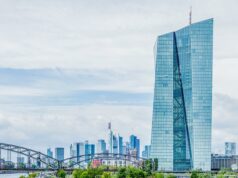Journalism is a dangerous profession in many countries – which can end in imprisonment, kidnapping or death. According to the annual report of Reporters Without Borders, it is not only dangerous in war and crisis areas. And the repression is getting more and more sophisticated.
Detained, humiliated, murdered – in many countries journalists risk their lives at work more and more often. According to Reporters Without Borders (ROG), at least 80 media workers were killed this year alone. More than half of them lost their lives in only five countries: in Afghanistan, Syria, Mexico, Yemen and India, the organization said.
More than half of the world’s 348 imprisoned media workers are also behind bars in five countries: China (60), Egypt (38), Turkey (33), Iran (28) and Saudi Arabia (28). In China, among the detainees are 46 citizen journalists trying to escape the ever-increasing control of the Communist Party of Traditional Media. This is clear from the ROG annual balance of the Pressefreiheit 2018.
The countries with the most killed media workers were Afghanistan (15 victims), Syria (11), Mexico (9), Yemen (8) and India (6). Six journalists also died in the US. Four of them were killed in an attack on Capital Gazette newspaper in Annapolis, Maryland. The year before, 65 media workers had been killed and 326 imprisoned.
Worldwide, 702 professional journalists have been killed in the past decade. Armed conflicts are still the biggest threat to them. A „frightening sign“ is also that as many journalists were murdered outside of war zones. Offenders and clients could often expect that even murders had no consequences – the community of nations must therefore finally find means against such impunity.
Countries are working on methods of oppression
Countries such as China, Egypt, Iran and Saudi Arabia are working on their methods of repression, according to the organization. Sufferers are often citizen journalists. New Internet laws make it easier for political leaders to tackle online reporters and social network users.
In 2018, more than 60 media workers were abducted worldwide – six more than a year earlier. Especially in the Middle East, this form of persecution is widespread. With one exception, the cases are fully concentrated on Syria, Yemen and Iraq.
Reporters Without Borders called on the UN to work for a special envoy to protect journalists. Although there are UN resolutions for better protection for journalists, especially in conflict areas, they have so far had little concrete effect on the situation of those affected.



